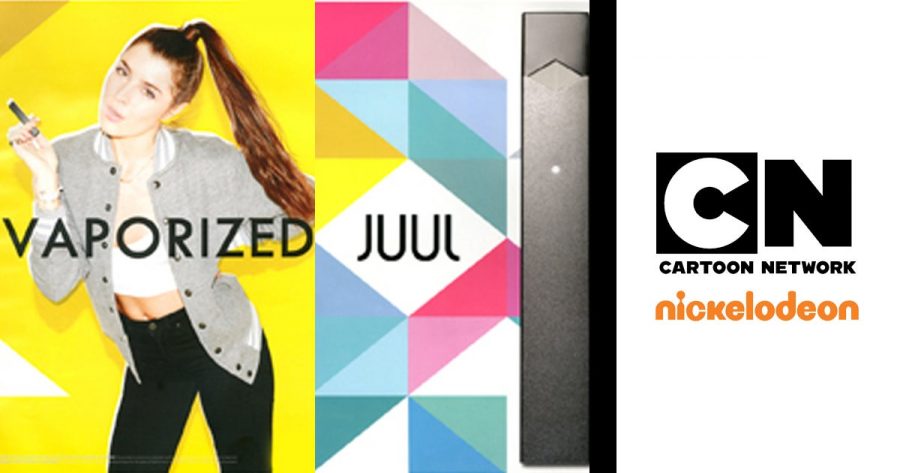How Juul is Driving Teens into Nicotine Addiction
For years, Juul has been targeting teens through ad campaigns across sites that are geared towards underage students. The Washington Post reported from a National Youth Tobacco Survey that, “4.1 million U.S. high school students…use e-cigarettes,” though the legal age to purchase cigarettes and e-cigarettes is eighteen. Juul has created a nicotine addiction epidemic among high school students across the United States.
According to The Washington Post, New York and California lawsuits have shown that Juul advertises their products as colorful, fun, and with flavors that appeal to an underage demographic. Juul has recently discontinued their most popular flavors, mango and mint pods, as a result of these lawsuits. In order to access their young buyers, Juul rejected an advertising proposal that “branded it as a technology company with a target audience of adult smokers,” says The New York Times’ Sheila Kaplan. Instead, Juul hired a separate marketing art director “to produce “Vaporized,” a youth-oriented campaign, featuring beautiful models in provocative poses.” Once Juul had obtained a satisfying ad campaign, they paid an outside company to run their ads across websites that are aimed towards young audiences. Some of these websites include coolmath.com, collegeconfidential.com, and hellokids.com. When Juul first started their company, they purchased ads to run on the websites of “Nickelodeon, the Cartoon Network, (and) Seventeen magazine.”
After targeting young users, Juul failed to stop underage teens from purchasing their product, even when they had sufficient information telling them that specific orders were illegal. According to Mass.gov, run by Massachusetts Attorney General Maura Healey, a Massachusetts lawsuit against Juul said that, “Juul allowed more than 1,200 accounts to be established for Massachusetts consumers using school email addresses.” When receiving a complaint about an order being blocked because of age, Juul emailed the customer saying: “If you have friends or relatives in Quincy, Mass., you may use their address as a shipping address for your order.” Juul’s argument that their product is being marketed towards adults is simply false. Between the colorful, young ad campaign, the chosen demographic of the sites that run their ads, and the disregard of underage purchasing, Juul has been proven to conduct the selling of their product in an unacceptable manner.
Juul’s actions have contributed immensely to the nicotine addiction that so many of the teens of our generation face today. Many states have filed lawsuits against Juul’s poor marketing practices, but Maryland has yet to reprimand the company. Students of our generation have an obligation to support each other and stop companies like Juul from putting our health at danger for their own financial benefit. You can speak up against the exploitation of our youth by contacting local governments and informing others about this destructive issue.

Hi! My name is Lilli Serota and I am a senior at Sandy Spring Friends School. I have been a staff writer for the Wildezine for three years and written...






